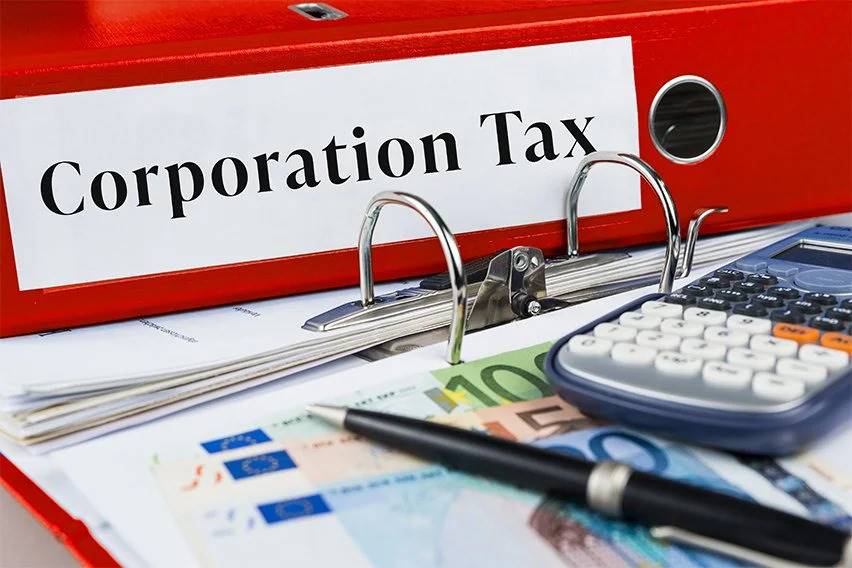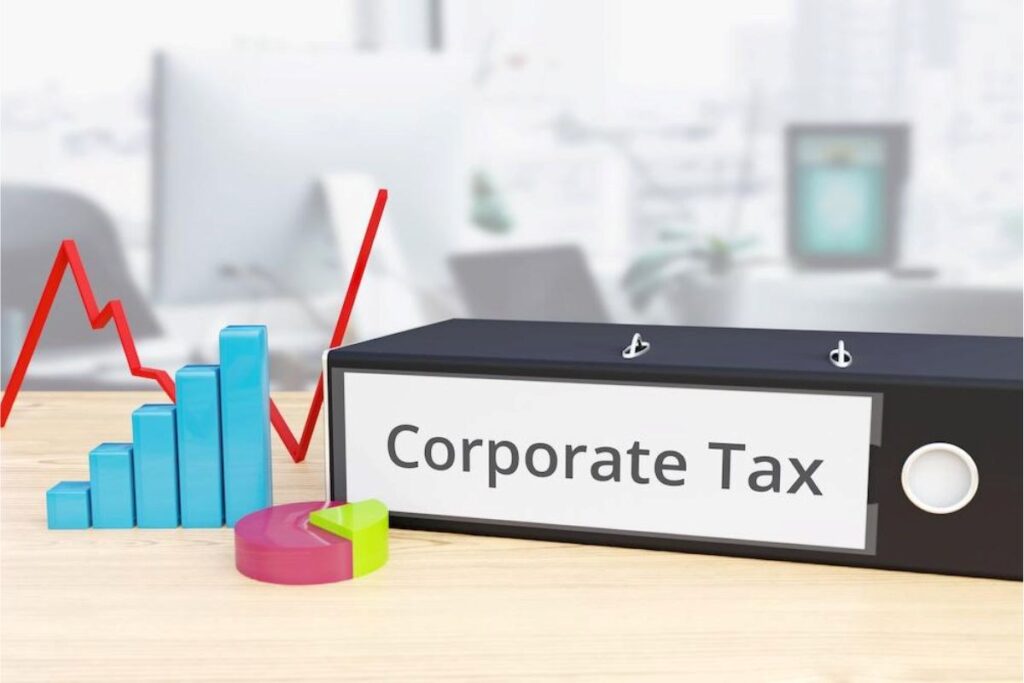It is always good for every business to be tax efficient. This is because if you can pay the least amount of business tax to the HMRC, you will be left with a large amount of funds.
You can potentially use this large amount in various sectors to ensure your business’s stability and fruitful future.
Additionally, there is a recent increase in the UK’s corporation tax rates to 25%, which leads to a huge tax burden on the companies. So, the companies are seeking ways to reduce the corporation tax more than ever.
Luckily, there are an array of proven strategies that you can implement to reduce the corporation tax burden. So, if you are interested to know more about how to reduce corporation tax then stay with me till the end of this guide.
Here, in this article, I will provide what is corporation tax in the UK, how much corporation tax is for a limited company in the UK, who pays corporation tax, who is responsible for paying corporation tax, and 10 smart strategies to implement for reducing the corporation tax.
Let’s dive into the deep!
What is Corporation Tax in the UK?

Corporation tax is the tax that the government charges on a business’s profit. In the UK, every public limited and private limited company are liable to pay the corporation tax.
Once the accounting year ends, you will get 9 months and 1 day to pay the corporation tax.
To file for the corporation tax, you will get 12 months after the accounting year ends.
Suppose, if your accounting period ends on 31 Mach, you need to pay the corporation tax by the next January 1.
You can also file your tax return within 12 months, and that will be 31 March of next year.
How Much is Corporation Tax for a Limited Company?
The corporation tax rate for a company making a profit for the 2023-24 tax year will be 19-25%.
So, it means a business, that is making an annual profit of 100,000 Pounds in a year, will pay 19,000 pounds corporation tax to the government.
The UK corporation tax rate is at present 25% for all limited companies.
The 25% is payable by the companies with tax profits of more than 250,000 pounds. There is a small profit rate for the companies with profits of 50,000 pounds or less.
So, it means, these companies will pay the corporation tax of 19%.
Companies with taxable profit between 50,000 Pounds and 250,000 Pounds are liable to pay the main corporation tax rate.
| Taxable profit level | Corporation tax rate |
|---|---|
| >250,000 Pounds | 25% |
| <50,0000 Pounds | 19% |
| In between 50,000 P to 250,000 Pounds | A Marginal tax rate of 26.5% on profits more than 50,000 |
Who pays Corporation Tax?
All the taxable UK limited companies are liable to pay corporation tax on their annual profits.
However, Corporation tax liabilities have extended to unincorporated organizations including co-operatives, clubs, associations, trade and housing associations, and members.
Who is responsible For Paying Corporation Tax?
The director, or directors of your company are responsible for making the returns of corporation tax in the UK.
The director needs to pay all the taxes within the appropriate deadlines. Various companies hire tax specialist accountants to prepare corporate tax returns.
However, the legal responsibility remains on the company director.
10 Smart strategies to reduce Corporation Tax
If you are wondering about how to reduce corporation tax, here I am to help you out. You just follow the below tips, hope you may find these the most effective ones!
1. Capital Allowances-tax relief on depreciation of assets and equipment
Capital Allowances are the structures by which you can obtain tax relief on the depreciation of assets and equipment.
You should maximize capital allowances as much as possible, and you must consider the timing of future expenditures carefully to maximize tax savings.
Companies can optimize the use of annual investment allowances, which will provide you full tax relief.
Annual investment allowances will provide the tax relaxation for the year of acquisition for up to 1m Pounds spent on assets and equipment.
You must review the following very carefully including the expenditure on acquiring, upgrading, or fitting out property, etc.
Because these mentioned factors will help you get maximum potential claims.
2. Don’t Forget To Pay Yourself A Salary
When you run a limited company solo, you may sometimes forget about that your business is a separate legal entity. your business’s money is not yours. So, you need to pay yourself a salary.
Salaries are business expenses, which reduce your profit. so your corporation tax amount will also be reduced. So, before paying corporation tax to the government, pay yourself a salary.
There is something that you should keep in mind there are some business owners who pay themselves both salary and dividends.
Dividends are drawn from profits, so you have to show that you have made a profit by issuing dividends. Otherwise, the HMRC will reclassify your dividends as salary.
So, in this case, you need to pay Income tax and National Insurance contribution.
3. Expenses-Claim everything allowable
There is an exclusive range of allowable expenses that you can claim. You can start with the better-known ones. These include:
- Premises costs that is utility bills, and rent
- Salaries and staff costs
- Office costs, stationary, etc.
- Bank loan interest
- Travel and accommodation costs for business trips
- Advertising and marketing costs
- Insurance payments
- Childcare
Also, there are some lesser-known expenses that you can claim, including:
- the cost of setting up your limited company
- The Christmas party
- mobile telephones
- the cost of parking
- donations to charity
- business gifts
- flights
- membership and subscriptions
4. Trading Loss
Trading losses can be used to claim relief for calculating the Corporation tax.
Tax relief can be obtained by offsetting the loss against other business profits. Also, you need to consider the losses and the profit during the same accounting period.
To calculate the trading losses, you need to include capital allowances and balancing charges. losses or gains that can be made on the sale or disposal of assets should not be included.
5. Claim R&D Tax relief
Research and Development relief (R&D) is tailored to help companies working on innovative projects in science and technology.
The companies should work on a specific project to get the R&D tax relief. Also, the companies must explain:
- how a project is working in the field of science and technology
- how the project has overcome some uncertainty
- why the solution of the problem had not been easily figure out by a professional
There are different types of R&D tax relief available in the UK, small and medium-sized enterprises can seek SME and R&D tax relief.
R&D tax relief enables qualified companies to reduce taxable profits or create tax losses.
R&D tax relief helps small businesses to deduct an extra 86% of their qualifying costs from their yearly profit.
So, in addition to the normal 100% deduction, the total deduction will be 186% deduction.
If the company is making a loss, then the company can claim a tax credit with up to 10% of the suspendable loss.
6. Employment Allowance
The employment allowance is a scheme that helps limited companies reduce their annual National Insurance contributions by up to 5,000 Pounds for each tax year.
This tax relief is available to employers whose class 1 National insurance liabilities were less than 100,000 pounds in the previous tax year.
However, the sole directors can not claim employment allowance.
7. Business rates
Business rates are another essential tax that is payable by the businesses similar to council tax.
The non-domestic properties such as shops, restaurants, cafes, offices, pubs, and guest houses are liable to pay the business rates. these are usually considered as tax-deductible business expenses.
Moreover, various businesses are eligible for the small business rate relief, so they are liable to pay the business rates reduced from the actual rate.
Businesses in retail, hospitality, charitable premises, and leisure sectors in England are exempted from business rates.
8. Working From Home
It is worth mentioning in this present era where a rising number of people are working from home in almost every sector.
If your home is used for business purposes, all limited companies can claim allowable business expenses.
These include a percentage of your utility bills, and household costs can be claimed as allowable business expenses. You can claim these by:
- Taking advantage of HMRC’s flat rate of 26 Pound per month tax relief in respect of working from home
- Working out the exact number that is being incurred for the work purposes.
If you use the second option, you need to have full records of the costs such as bills, receipts, and contracts.
9. The Paent box
The patent box scheme enables businesses to apply a lower rate of Corporation tax to profits earned from any of their patented inventions.
The qualified companies that successfully get qualified with this patent box scheme can reduce their corporation tax to 10%.
10. Goodwill and relevant assets
Corporation tax relief is available on some intangible assets. These include intellectual property and goodwill.
The Corporation tax relief on goodwill and relevant assets is at a fixed rate of 6.5% a year.
FAQ
How can I reduce my Corporation tax in the UK?
Ans: There are a few strategies that you can implement to reduce your Corporation tax in the UK, including:
- Claim for R&D tax relief
- Utilizing the cost of training and subscription
- investing in Enterprise Investment Schemes
- Utilizing Capital gains tax relief
Why is Corporation tax so low in the UK?
Ans: The UK has low productivity and a low level of capital investments. That is why, corporation tax is so low in the UK. The level of capital investment and productivity both should be increased.
Is Corporate tax high in the UK?
Ans: The main rate of Corporate tax is 25% for the financial year of 2023-24. The main rate of corporate tax applies to companies with profits over GBP 250.000.
Conclusion
Corporation tax is a type of tax, which is paid by businesses including a limited company, any foreign company having a UK branch or office, community group, sports clubs, etc. However, there are some ways to reduce the corporation tax.
Here, in this article, I have provided all the details of how to reduce corporation tax in the UK. You can go through this guide and try to implement all the possible strategies for your business so that you can be liable for paying the corporation tax at a reduced amount.

